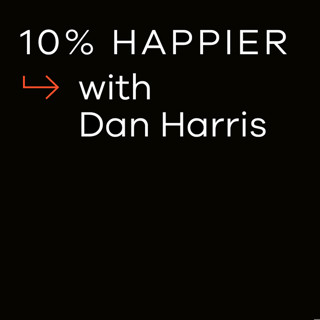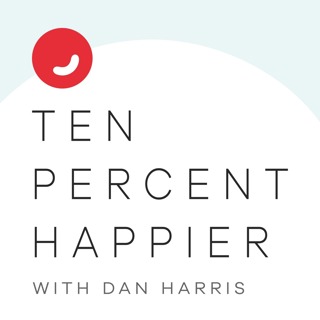
Sitting with Chaos | Zenju Earthlyn Manuel
Very few of us relish chaos and disruption, but they are facts of life, given the nonnegotiable nature of change. In this episode with Zenju Earthlyn Manuel, we’re going to talk about how to tune into the value of disruption, and learn how to sit with the chaos. Zenju Earthlyn Manuel is an ordained Zen priest, holds a Ph.D., and worked for decades as a social science researcher and development director for non-profit organizations. She is also a prolific author. In this conversation we’ll explore: what to do with the unknown and not having any answers; the power of a “sip of silence” (her term); what she means by the phrase “death as a doorway to tenderness;” how she defines tenderness - a word that can easily get bogged down in sloppy sentimentality; and what she meant when she wrote “I'm not advocating love as an answer to all of the ills of the world. Then again, it is just that simple to be love.” Content Warning: There are brief mentions of assault; spiritual, sexual, and substance abuse; and racism, including a recent incident Zenju experienced herself.
11 Loka 202151min

The Awesome Power of "Touchy-Feely" | Carole Robin and David Bradford
We talk a lot on this show about social connection, but in this episode we’re going to get super granular on how to actually do relationships better. Carole Robin and David Bradford taught the most popular elective course at the Stanford Graduate School of Business for a combined total of 75 years. Officially, the name of the course is Interpersonal Dynamics, but everybody calls it “Touchy-Feely.” Together they have written the new book, Connect: Building Exceptional Relationships with Family, Friends, and Colleagues. We dive into the six hallmarks of what they call “exceptional relationships,” how to be honest and vulnerable without overdoing it, why the questions “how am I feeling?” and “how are you feeling?” are central to improving our communication, the inevitability of risk when you set out to deepen a relationship, and why meditation is helpful in all of this. Download the Ten Percent Happier app today: https://10percenthappier.app.link/install Full Shownotes: https://www.tenpercent.com/podcast-episode/carole-robin-david-bradford-385
6 Loka 20211h 7min

What to do About Eco-Anxiety | Jay Michaelson
In the mental health community, there’s a new term: “Eco-Anxiety.” Our guest in this episode, Jay Michaelson, has been thinking hard about climate change for many, many years. Michaelson is a meditation teacher, rabbi, lawyer, activist, and journalist. And he is also a core teacher in the Ten Percent Happier app. He’s covered climate change extensively, and has taught environmental ethics at Boston University Law School and Chicago Theological Seminary. He has also been a leading environmental activist in religious communities. In this conversation, we talk about what Jay thinks some meditation teachers get wrong about climate change, what he calls the “delusion” that individual habit change can make an impact, how we can use meditation to engage more effectively in the kind of politics he says we need to move the needle on a systemic level, and how to use meditation and deep breathing to handle eco-anxiety.
4 Loka 20211h 1min

An "Erotic" Approach to the Climate Crisis | Dr. Andreas Weber
In this episode we’re talking about increasing happiness by connecting to nature. Guest Andreas Weber is a renowned philosopher, biologist, and writer based in Berlin. He is the author of many books, including Matter & Desire: An Erotic Ecology. He has a fascinating and surprising approach: calling for an “erotic” relationship to nature. Weber calls it “erotic ecology” and argues that we have been socialized to have an instrumental view of nature and instead wants us to be in a love relationship with nature. In this conversation, we talk about how to actually practice erotic ecology, what Weber means when he says love is the foundational principle of reality, how and why to make ourselves “edible,” and how Weber manages his own pessimism when it comes to climate change.
29 Syys 202148min

Stoicism 101 | Nancy Sherman
You may have heard about stoicism, in the common parlance, as having a stiff upper lip, sucking it up, grinning and bearing it, suppressing your emotions, etcetera. Or you may have heard of Stoicism, the ancient Greco-Roman philosophy, that has become the de rigeur set of life hacks among millennial self-optimizers. In this episode, guest Nancy Sherman argues that Stoicism is way deeper than any of that. She will argue that, in fact, Stoicism is kind of the opposite of all the above. It’s a way to truly know your patterns of thought and emotion. Nancy is a Professor of Philosophy at Georgetown University. She is an expert in ethics, the history of moral philosophy, moral psychology, military ethics, and emotions. Her most recent book is called Stoic Wisdom: Ancient Lessons for Modern Resilience. In this conversation we cover the basics of Stoicism, how and why capital “S” Stoicism is often misinterpreted, a meditation practice called “premeditation of evils” (which is far more practical than it may sound), and another practice designed to make you feel “at home in the world." Please note: This interview includes a brief reference to suicide. Download the Ten Percent Happier app today: https://10percenthappier.app.link/install Full Shownotes: https://www.tenpercent.com/podcast-episode/nancy-sherman-382
27 Syys 20211h 7min

What Does it Actually Mean to Be a "Whole Person"? | Scott Barry Kaufman
In this episode, we’re going to demystify concepts such as: self actualization, personal growth, authenticity, and bringing your “whole self” to the table. Scott Barry Kaufman is a cognitive scientist and humanistic psychologist. He is the founder and director of the Center for the Science of Human Potential at the University of Melbourne’s Centre for Wellbeing Science. He also hosts the #1 psychology podcast in the world - The Psychology Podcast. And he is the author of a new book called Transcend: The New Science of Self-Actualization. We talk about the meaning of “transcendence” and the difference between transcending in an unhealthy and healthy way; being compassionate, understanding, accepting, forgiving, and perhaps even loving about your foibles and ugliness; and the difference between authenticity and “pseudo-authenticity”. You can download the Ten Percent Happier app here today: https://10percenthappier.app.link/install Here are the steps for sending us a question for our upcoming Work Life Series: 1. Go to a quiet place and open the default voice memo recording app on your phone. 2. Hold the phone about 8-10 inches from your face, then tap “record.” 3. Tell us your name, where you’re from, and what your question is. Try to keep it to about a minute or so. 4. Stop the recording, then check it to make sure it sounds clear. 5. Email it to us at: listener@tenpercent.com by September 27, 2021. Full Shownotes: https://www.tenpercent.com/podcast-episode/scott-barry-kaufman-381
22 Syys 20211h 1min

Psychedelics and Meditation | Michael Pollan
Michael Pollan has done more than perhaps anybody else in recent history to change the conversation on the use of psychedelic drugs, or plant medicine. He is author of the best selling book called How to Change Your Mind and he recently followed up with another book called This is Your Mind on Plants. Pollan is also the co-founder of the University of California Berkeley Center for the Science of Psychedelics, along with another recent podcast guest, Dacher Keltner. In this conversation we talk about whether psychedelics and meditation can mix and the links between psychedelics, meditation and Buddhism; the universal human drive to change consciousness; and his experiences with the three plants that he focuses on in his new book: opium, caffeine, and mescaline. Please note: this episode contains conversations about depression, suicide, and substance use. Here are the steps for sending us a question for our upcoming Work Life Series: 1. Go to a quiet place and open the default voice memo recording app on your phone. 2. Hold the phone about 8-10 inches from your face, then tap “record.” 3. Tell us your name, where you’re from, and what your question is. Try to keep it to about a minute or so. 4. Stop the recording, then check it to make sure it sounds clear. 5. Email it to us at: listener@tenpercent.com by September 27, 2021. Download the Ten Percent Happier app today: https://10percenthappier.app.link/install Full Shownotes: https://www.tenpercent.com/podcast-episode/michael-pollan-380
20 Syys 202151min

How to Get the Wisdom of Old Age Now | Dilip Jeste
Happiness levels are really high when we’re young. They then steadily dip through our 20s, 30s, and 40s, and bottom out in our early 50s–at which point, they make a sharp and sudden rise. Then, through our 60s, 70s, and 80s, they are way above where we were in our youth. Why is this? Why do we get happier even as our bodies are falling apart? Here’s another question: Why, from the standpoint of evolution, do humans stick around way past the point of reproductive age? The answer to all of these questions, per our guest today, is: wisdom. Dr. Dilip Jeste is a Distinguished Professor of Psychology at the University of California, San Diego, and the author of Wiser: The Scientific Roots of Wisdom, Compassion, and What Makes Us Good. In this conversation, we talk about how exactly he defines wisdom, what people of all ages can do to become wiser now, and the relationship between wisdom and loneliness. A quick content warning: this conversation includes references to sensitive topics, including suicide, substance abuse, and depression. Download the Ten Percent Happier app today: https://10percenthappier.app.link/install Full Shownotes: https://www.tenpercent.com/podcast-episode/dilip-jeste-379
15 Syys 20211h 2min





















